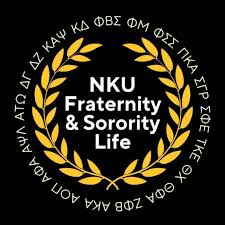With the recent dissolution of the Office of Inclusive Excellence (OIE) on Northern Kentucky University’s campus, an emerging question for Greek Life Diversity, Equity and Inclusion (DEI) officers lingers. Will DEI officers continue their efforts or will their roles slowly fade out of Greek Life?
Dissolution of the Office of Inclusive Excellence
On Aug. 29, students on NKU’s campus were made aware of the dissolution of the OIE through a school-wide email sent out by President Cady Short-Thompson.
Some students were confused and unaware that the office closure on campus was the Office of Inclusive Excellence. From an email from Corey Best, NKU’s chief communications officer, she said, “We no longer have an Office of Inclusive Excellence. We never had a DEI office.”
“Overall, I think that a lot of students were confused about the office closing. I don’t think a lot of students realized that DEI was just a part of the OIE and not a stand-alone organization in its own office, if that makes sense,” Alyssa McCrystal, NKU sophomore said.
On Sept. 3, students heard from Short-Thompson, with a clarifying email about what the OIE closing meant for NKU. It explained how the engagement, sense of belonging and success of students was still crucial.
Evan Gates, active member of Sigma Phi Epsilon and DEI officer, gave more insight on what the OIE did at NKU.
“Essentially apply principles of DEI to everyday faculty and staff concerns and interactions. OIE tries to give resources for faculty in working with students from all backgrounds, including but not at all limited to historically-underrepresented ones. OIE particularly takes a leadership role in discussions on DEI as well as on campus in general to facilitate the best positive environment for all community members,” said Gates.
Reactions of DEI officers
“It is very disappointing. NKU often claims that they foster an inclusive and diverse environment, which I believe to be true. However, their current actions are not reflecting these ideals,” Addison Rowe, an active member of Phi Mu and DEI chairholder said.
“The Office of Inclusive Excellence doesn’t just serve a practical purpose in educating the community but exists as a literal dedication to community improvement. Taking a driving role in how our institution interacts with identity and culture helps us to build a better environment and nature for NKU as a whole,” Gates also mentioned.

DEI officers in Greek Life
Sloan Ritter, vice president of DEI on NKU’s Panhellenic Council, heard about the office closing from a friend and said that DEI is important for Greek Life management.
“Many people in Greek Life come from diverse backgrounds and it is important that everyone understands that. Many people have misconceptions of Greek Life and the only way to fix that is to educate ourselves, better understand DEI and show people that Greek Life is evolving like everything else,” Ritter said.
Ritter checks in with DEI officers in each chapter, making sure that they are fulfilling their responsibilities within the organization. One of the biggest of these responsibilities is the “workshops” that are required by not only Panhellenic Council but also Interfraternity Council.
There are ally trainings for new members, and active members are required to attend mental health training, bystander intervention and consent training, which Norse Violence Prevention (NVP) helps organize. But there are smaller ideas that go into the officer positions, such as making sure that individuals feel included and welcomed into the chapters. Both fraternities and sororities also bring in guest speakers from around campus to educate and support their members.
What is to come
Gates said individuals must work hard toward continuing the work of DEI because he cannot represent alone.
“There is no structure in IFC (Interfraternity Council) to ensure DEI chairs do their jobs despite the fact our training is required for several things, such as keeping our new member class in good standing or qualifying for the Gold & White Awards,” Gates explained. “The lacking nature of IFC’s work on DEI forces enterprising DEI chairs to rely heavily on existing offices. In my tenure as a DEI chair, this included the Office of Inclusive Excellence, and it makes it that much harder to hold people accountable to be respectful and understanding of one another when we lack institutional structure to make that possible.”
“We will continue to enforce DEI regulations that are outlined in the Panhellenic Bylaws. Our chapters and new members will continue to be educated by the DEI chairperson in each sorority,” Ritter said.
Will officers still enforce these guidelines?
“I will continue to educate members and promote DEI the same as I have in the past. The office closing does not discourage me from continuing my effort in fostering an inclusive environment in my chapter,” Rowe continued. “DEI initiatives create and foster a diverse and inclusive environment that allow students and faculty to grow as individuals and as a campus community. NKU serves as a home for minority students and others that could benefit from these initiatives.”
Despite the closure of the OIE, fraternities and sororities are actively planning initiatives to promote DEI, exemplifying to NKU that their commitment to cultivating an inclusive community remains strong despite administrative changes throughout campus.


